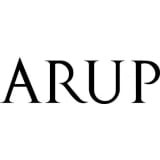
Arup
About
Arup is an independent firm of designers, planners, engineers, consultants and technical specialists offering a broad range of professional services. Through their work, they make a positive difference in the world.
Founded in 1946 with an initial focus on structural engineering, Arup first came to the world’s attention with the structural design of the Sydney Opera House, followed by its work on the Centre Pompidou in Paris. Arup has since grown into a truly multidisciplinary organisation. Most recently, its work for the 2008 Olympics in Beijing has reaffirmed its reputation for delivering innovative and sustainable designs that reinvent the built environment.
Arup brings together broad-minded individuals from a wide range of disciplines and encourages them to look beyond the constraints of their own specialisms.
This unconventional approach to design springs in part from Arup’s ownership structure. The firm is owned in trust on behalf of its staff. The result is an independence of spirit that is reflected in the firm’s work, and in its dedicated pursuit of technical excellence.
INTERNATIONAL DEVELOPMENT
Arup's international development team provides expert technical advice and practical solutions which reduce poverty and improve human, economic and environmental health in developing countries.
The firm's specialists provide expert technical advice and practical, sustainable urban development and infrastructure work in the developing world for a wide range of clients. These include the UK Department for International Development (DFID), the Rockefeller Foundation, the United Nations Office for Project Services and the Disasters Emergency Committee.
Combining a strategic, holistic approach with an in-depth understanding of project implementation, the firm offers long-term benefit to communities and developing countries. This allows them to realise their goal of reducing poverty and vulnerability and building local capacity.
Arup's experience ranges from physical interventions and programme management to policy development. The principles of international development are deeply ingrained in Arup's mission to 'shape a better world', as borne out by a 60-year track record on projects in Asia and Sub-Saharan Africa.
Urban development
Providing communities with access to essential services and social infrastructure is key to tackling poverty and improving living conditions in rapidly growing urban populations and slum settlements. Arup provides a broad range of services to support the planned and sustainable development of developing communities, such as macro-level, integrated, sustainable masterplans, implementation strategies for urban growth and regeneration, integrated transport planning and building design, sectoral analysis and sustainability assessments.
Water and sanitation
More than one billion people around the world do not have access to clean water and twice as many have no sanitation. Arup has developed and implemented appropriate, affordable, and innovative water supply and waste management systems, which recognise the role of local and national government and community management in services provision.
Disaster risk reduction
Disasters caused by natural hazards result in significant loss of property, lives and livelihoods and threaten the realisation of the Millennium Development Goals. Arup has supported post-disaster relief and reconstruction projectsaround the world since the 1980s. Responding to the Hyogo Framework for Action, the firm provides expert advice on reducing risk to communities through disaster preparedness programmes, multi-hazard risk reduction strategies and policy development.
Climate change adaptation
Communities in developing countries are particularly vulnerable to both the direct and indirect impact of climate change. Understanding the threats involved is essential to developing local adaptation strategies. Arup has developed assessment methodologies, based on the Intergovernmental Panel on Climate Change (IPCC) scenarios, and urban systems mapping to help communities identify vulnerability and establish priorities for development.
Education
Education is the cornerstone of social and economic advancement. Arup's approach to planning and designing educational facilities is shaped by local needs, materials, capacity and culture. We use leading edge analysis to optimise performance and buildability so that prototypes can be replicated and programmes scaled-up, where required. The approach also takes account of funding and long-term economic planning, particularly the need to balance income streams with operational and maintenance costs.
Tailored methodologies
Innovative tools and methodologies give the best results for clients around the world. Arup has developed the ground-breaking ASPIRE tool in partnership with the not-for-profit organisation, Engineers Against Poverty. ASPIRE – A Sustainability Poverty and Infrastructure Routine for Evaluation - is an integrated planning, monitoring and evaluation model for assessing the sustainability and poverty reduction performance of infrastructure projects in developing countries.
Type of organization



In the News
Experience
Company Offices
- Australia
- Sydney
- Level 10, 201 Kent Street
- Botswana
- Gaborone
- PO Box 1599
- India
- Mumbai
- 5/F Housefin Bhavan C-21 Bandra Kurla Complex Bandra (East)
- Ireland
- Dublin
- 50 Ringsend Road
- Korea, South
- Seoul
- Room 602, Rodeo Plaza Building 48-7 Cheongdam-Dong Gangnam-Gu
- Qatar
- Doha
- PO Box 1301
- Romania
- Bucharest
- Unimed Center, 8-10 Tudor Arghezi str
- Russian Federation
- Moscow
- 36 Krasnoproletarskaya Street 4th Floor
- Serbia
- Belgrade
- Olga Djuric Peric Djordja Stanojevica 14
- Singapore
- Singapore
- 10 Hoe Chiang Road 26-01 Keppel Towers
- South Africa
- Johannesburg
- 10 High Street Melrose Arch
- Thailand
- Bangkok
- 31/F, Italthai Building 2034/134 New Petchburi Road Bangkapi Huaykwang
- Türkiye (Turkey)
- Istanbul
- Barbaros Bulvari Morbasan Sok Koza Is Merkezi B Blok, Kat 7 Balmumcu
- United Arab Emirates
- Dubai
- P O Box 212416
- United Kingdom (headquarters)
- London
- 13 Fitzroy Street
- United States
- Washington
- 1120 Connecticut Avenue NW Suite 200
- Viet Nam
- Ho Chi Minh
- 8/F, Star Building 33 Ter - 33 Bis Mac Dinh Chi Street District 1